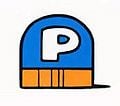P Switch: Difference between revisions
No edit summary |
|||
| Line 26: | Line 26: | ||
In ''Super Mario Bros. 3'', a P-Switch can cause the animations of [[Question Block]]s, [[Brick Block]]s and [[Note Block]]s to stop. In addition, reversed coins and bricks don't have any animation (except in ''[[Super Mario Bros. 3#Super Mario Advance 4: Super Mario Bros. 3|Super Mario Advance 4: Super Mario Bros. 3]]''). | In ''Super Mario Bros. 3'', a P-Switch can cause the animations of [[Question Block]]s, [[Brick Block]]s and [[Note Block]]s to stop. In addition, reversed coins and bricks don't have any animation (except in ''[[Super Mario Bros. 3#Super Mario Advance 4: Super Mario Bros. 3|Super Mario Advance 4: Super Mario Bros. 3]]''). | ||
In ''Super Mario World'', the gray version of the P-Switch makes most enemies turn into Silver Coins. Collecting eight of these coins awards [[Mario]] an [[Extra Life|extra life]]. Collecting one more gives Mario two extra lives. After nine coins, Mario will earn three extra lives for each additional coin. Also, gray P-Switches can turn Munchers into regular coins. However, this was never actually used in the original game. ''Super Mario World'' is the only game in which P-Switches can be carried by Mario and saved for later. In all other games, Mario can't carry the switches and must use them right where they appear. | In ''Super Mario World'', the gray version of the P-Switch makes most enemies turn into Silver Coins. Collecting eight of these coins awards [[Mario]] an [[Extra Life|extra life]]. Collecting one more gives Mario two extra lives. After nine coins, Mario will earn three extra lives for each additional coin. Also, gray P-Switches can turn Munchers into regular coins. However, this was never actually used in the original game. ''Super Mario World'' is the only game in which P-Switches can be carried by Mario and saved for later. (Mario can also carry the switch after it has been pressed for a short time if he's quick before it disappears.) In all other games, Mario can't carry the switches and must use them right where they appear. | ||
In both ''New Super Mario Bros.'' and ''New Super Mario Bros. Wii'', some P-Switches could be reused. This is the first instance of P-Switches exhibiting this characteristic. Prior to this, all P-Switches became unusable indefinitely after one activation. | In both ''New Super Mario Bros.'' and ''New Super Mario Bros. Wii'', some P-Switches could be reused. This is the first instance of P-Switches exhibiting this characteristic. Prior to this, all P-Switches became unusable indefinitely after one activation. | ||
Revision as of 13:09, December 10, 2011
Template:Item-infobox P-Switches (also known as Switch Blocks) are items found in Super Mario Bros. 3, Super Mario World, New Super Mario Bros., and New Super Mario Bros. Wii.
When pressed, a P-Switch changes something in the stage for a limited amount of time. This includes:
- Turning Brick Blocks (Used Blocks in Super Mario World) into coins.
- Turning coins into Brick Blocks (Used Blocks in Super Mario World).
- Changing enemies into Silver Coins (Super Mario World gray switches only).
- Turning Munchers into coins (requires gray switch in Super Mario World, but was never used)
- Allowing Mario to access a hidden door. (Appears as a white light in Super Mario Bros. 3 and a blue door in Super Mario World. Appears as a normal door in all other games.)
- Making hidden Coins appear (silver or light blue in many games).
- Making hidden Question Blocks appear.
- Stopping conveyor belts from moving (Super Mario Bros. 3)
One rather confusing thing is that a Brick Block with an item inside it will look like a coin, but act like a block. This confusion was removed in the Game Boy Advance remake of Super Mario Bros. 3.
In Super Mario Bros. 3, a P-Switch can cause the animations of Question Blocks, Brick Blocks and Note Blocks to stop. In addition, reversed coins and bricks don't have any animation (except in Super Mario Advance 4: Super Mario Bros. 3).
In Super Mario World, the gray version of the P-Switch makes most enemies turn into Silver Coins. Collecting eight of these coins awards Mario an extra life. Collecting one more gives Mario two extra lives. After nine coins, Mario will earn three extra lives for each additional coin. Also, gray P-Switches can turn Munchers into regular coins. However, this was never actually used in the original game. Super Mario World is the only game in which P-Switches can be carried by Mario and saved for later. (Mario can also carry the switch after it has been pressed for a short time if he's quick before it disappears.) In all other games, Mario can't carry the switches and must use them right where they appear.
In both New Super Mario Bros. and New Super Mario Bros. Wii, some P-Switches could be reused. This is the first instance of P-Switches exhibiting this characteristic. Prior to this, all P-Switches became unusable indefinitely after one activation.
P-Switches appear in Super Mario 3D Land. Here, they are flatter with a light blue "P" printed. When pressed, they become red.
Gallery
A Blue P-Switch in Super Mario Bros. 3. A Blue P-Switch in Super Mario World. - P-Switches.PNG
Two P-Switches from Super Mario World. - P switch.png
A P-Switch from New Super Mario Bros.. - PSwitch.PNG
The P-Switch in New Super Mario Bros. Wii.
Names in Other Languages
Trivia
- The Blue Wisp from Sonic Colors is based off the P-Switch, as it turns Blue Rings into walkable platforms and vice versa.

